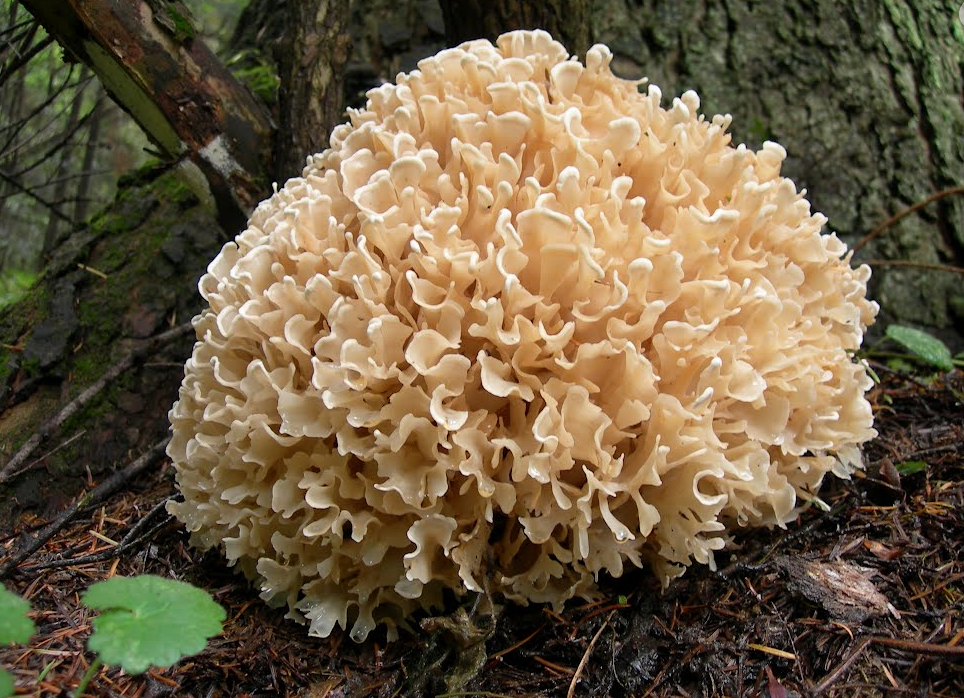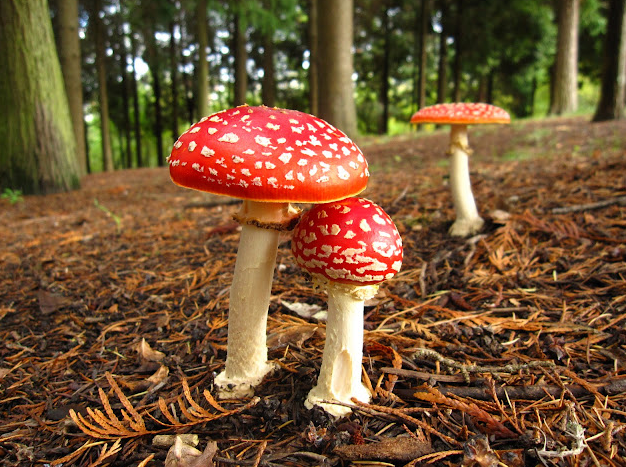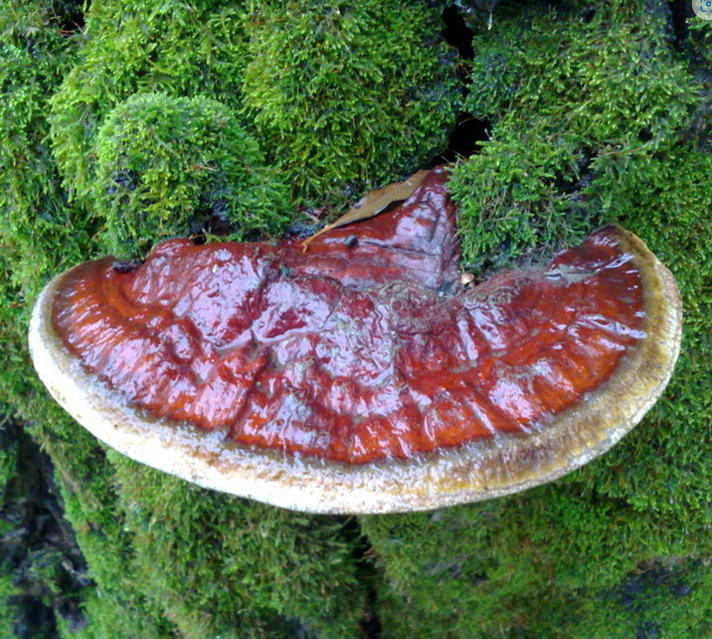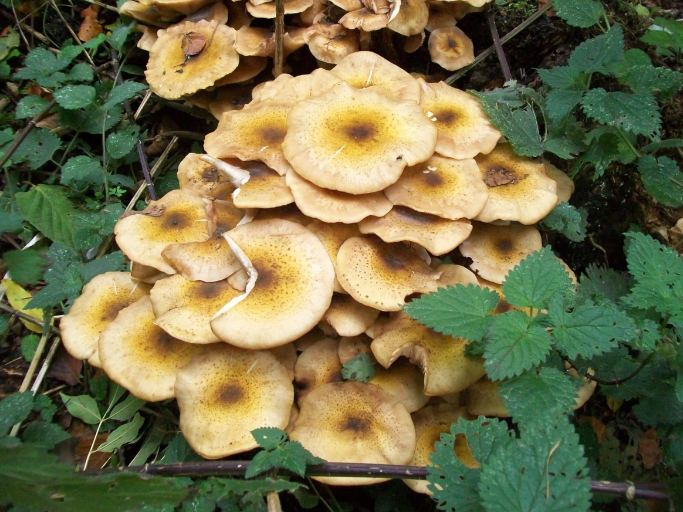1st Sept 2024: Look out for Fungi & Explore the Role of Fungi in Ecosystems
Autumn rains and warm temperatures will be the perfect conditions for fungi (mushrooms & toadstools) to appear in Guernsey. The role of fungi in ecosystems is often underestimated and overlooked, especially their vital relationships with trees. However, these incredible organisms play a crucial role in maintaining the balance and health of many ecosystems around the world. Fungi are a diverse group of organisms that can be found in almost every environment, ranging from forests and grasslands to deserts and oceans. They have unique characteristics and abilities that allow them to perform a variety of functions that are essential for the overall well-being of their ecosystems.

Cauliflower fungus - found on pines

Fly agaric - often associated with pines & birches
One of the most important roles of fungi in ecosystems is decomposition. Fungi are the primary decomposers in many ecosystems, breaking down dead organic matter such as fallen leaves, wood, and animal remains. They do this by secreting enzymes that break down complex organic compounds into simpler forms that can be used by other organisms. This process is crucial for nutrient cycling, as it releases nutrients back into the environment and makes them available for other organisms to use. In addition to decomposition, fungi also play a vital role in nutrient cycling. They have a unique ability to form mutualistic relationships with plants, known as mycorrhizae. Mycorrhizal fungi form a symbiotic association with plant roots, where they exchange nutrients with the plant. The fungi provide the plant with essential nutrients such as phosphorus and nitrogen, which are often limited in the soil, while the plant provides the fungi with sugars produced during photosynthesis. Mycorrhizal fungi not only enhance nutrient uptake for the plant but also improve its resilience to environmental stresses such as drought and disease. This mutualistic relationship is incredibly important for the growth and survival of many plant species, especially in nutrient-poor soils. Fungi also have an impact on the carbon cycle in ecosystems.

Ganoderma resinaceum - seen on Turkey oaks amongst other species
When fungi decompose organic matter, they release carbon dioxide back into the atmosphere. However, they also store a significant amount of carbon in their tissues. Fungal biomass can account for a significant portion of the carbon stored in soil, thereby influencing carbon sequestration and climate regulation. Furthermore, some fungi have a role in enhancing the availability of water in ecosystems. Fungi that form associations with plants can extend their hyphal network into the soil, increasing its water-holding capacity and facilitating water uptake by plants, especially in dry environments. This ability is particularly important for the resilience of ecosystems in the face of climate change and increasing water scarcity. In addition to their ecological roles, fungi also have economic and medicinal importance. Many fungi are used in the production of food and beverages, such as bread, cheese, and beer. They are also a source of various pharmaceutical compounds and antibiotics. Furthermore, some fungi have the ability to degrade pollutants and toxins, making them useful in bioremediation efforts. Overall, fungi play a vital and multifaceted role in ecosystems. From decomposition to nutrient cycling, carbon sequestration, water availability, and beyond, they have a significant impact on the health and functioning of ecosystems. Recognizing and understanding these roles are essential for ensuring the sustainable management and conservation of our natural resources.

Honey fungus - a ubiquitous fungus which attacks and decays a wide range of woody plant species
For more information & advice please contact Guernsey Trees for Life